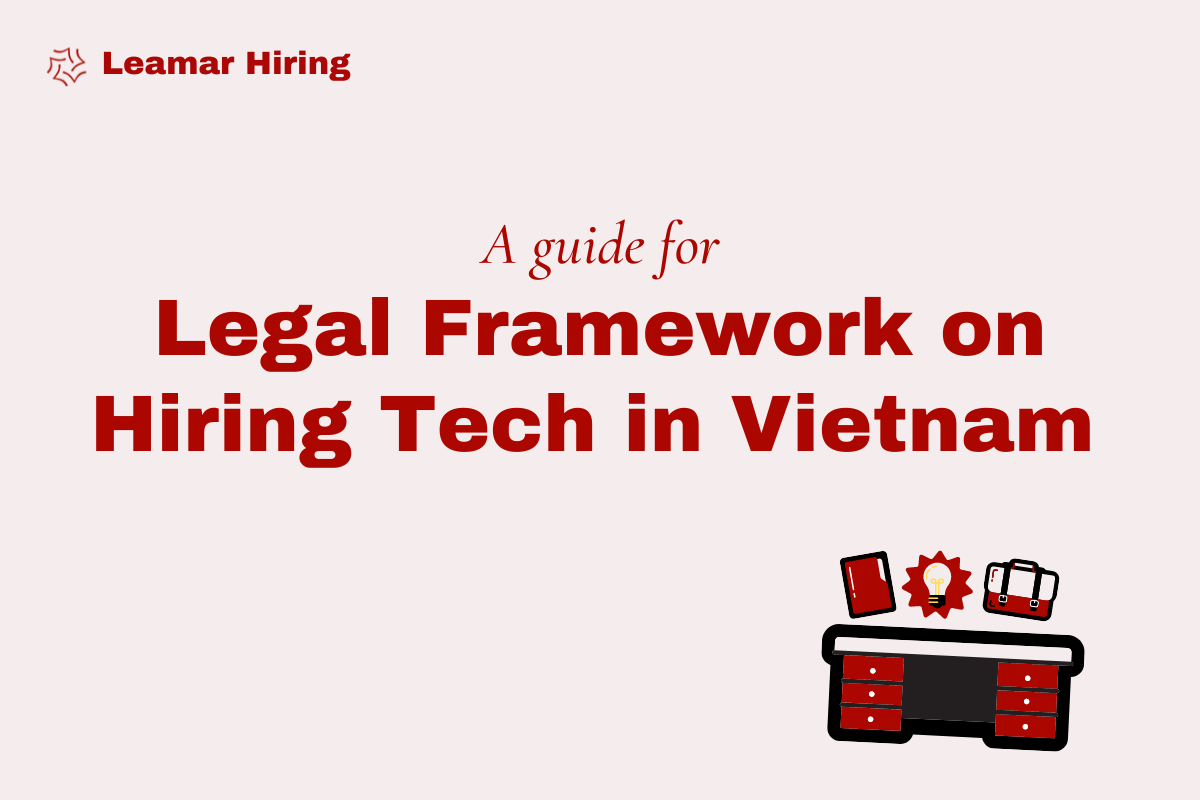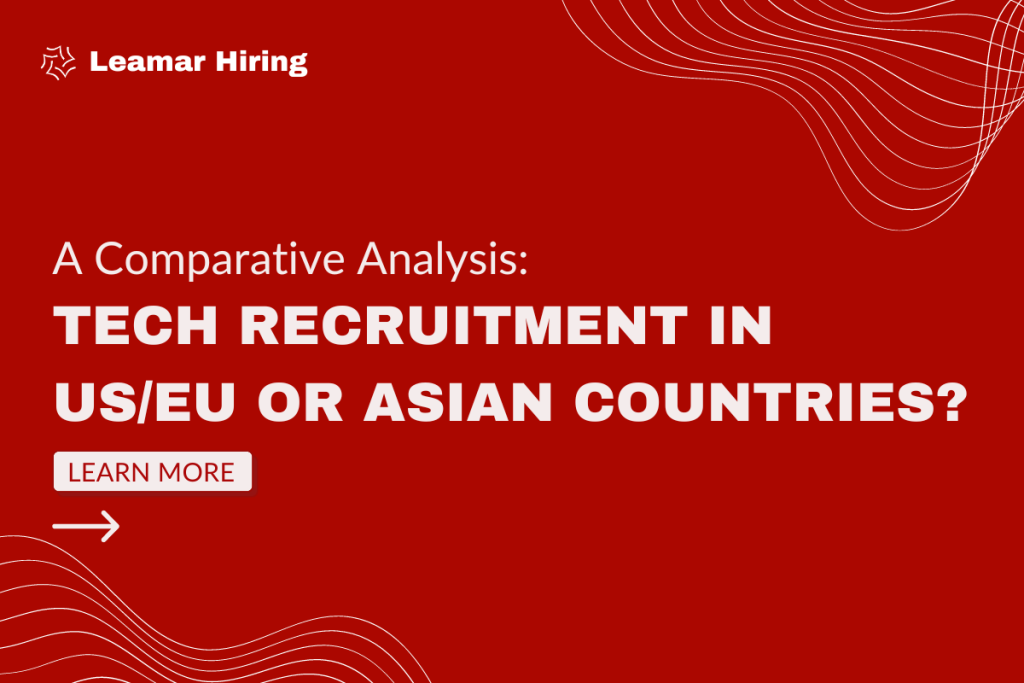As Vietnam’s tech industry experiences exponential growth, the demand for highly skilled tech talents continues to surge. Companies, both local and international, are increasingly looking to Vietnam not only for its competitive cost advantages but also for its burgeoning pool of talented professionals in fields such as software development, data science, and cybersecurity. However, navigating the legal landscape of hiring in Vietnam requires a thorough understanding of the local employment laws and regulations. This article aims to provide a comprehensive overview of the legal framework governing the recruitment and employment of tech professionals in Vietnam, offering valuable insights to employers seeking to attract and retain top-tier talent in this dynamic market.
1. Overview of Employment Laws in Vietnam
Vietnam’s employment laws are primarily governed by the Labor Code, which serves as the cornerstone of all employment-related regulations in the country. The Labor Code outlines the rights and obligations of both employers and employees, ensuring a balanced and fair working environment. The Ministry of Labour, Invalids and Social Affairs (MOLISA) is the key governmental body responsible for overseeing and enforcing labor laws, ensuring compliance across various sectors, including the tech industry.
The Labor Code covers a wide range of employment aspects, including recruitment, employment contracts, working conditions, employee benefits, and dispute resolution. Recent amendments to the Labor Code, which came into effect in 2021, have introduced several changes aimed at aligning Vietnam’s labor regulations with international standards and improving the overall business environment. These changes reflect the government’s commitment to fostering a more attractive and competitive labor market for both domestic and foreign investors.
Understanding the fundamental provisions of the Labor Code is crucial for employers in the tech sector. This knowledge not only helps in ensuring legal compliance but also plays a significant role in developing effective hiring strategies and creating a conducive work environment that attracts and retains top talent. In the following sections, we will delve deeper into the specific legal requirements and considerations involved in hiring tech professionals in Vietnam, providing a detailed roadmap for employers navigating this complex landscape.
2. Employment Contract
According to the current Labor Code in Vietnam, there are two main types of contracts that can be used to hire personnel for an organization or business: Labor Contracts and Service Contracts.
In details:
a) Labor Contracts:
According to the 2019 Labor Code in Vietnam, there are two types of labor contracts:
(i) Indefinite-term Labor Contract: This type of contract does not specify the duration or the end date of the contract.
(ii) Definite-term Labor Contract: This type of contract specifies the duration and the end date, which cannot exceed 36 months from the effective date of the contract.
b) Service Contracts:
Commonly referred to as freelance or contractor agreements, a service contract is an agreement between parties in which the service provider performs work for the service user, who in turn must pay for the service provided.
The subject of a service contract is work that can be performed, does not violate any prohibitions of the law, and is not contrary to social ethics.
Key Provisions: Every labor contract must include specific details such as job description, salary, working conditions, and the rights and obligations of both the employer and the employee.
3. Working Conditions and Employee Benefits
Vietnamese labor laws are designed to protect the rights of employees, ensuring fair treatment and safe working conditions.
a) Working Hours:
– Standard workweek: 48 hours, typically divided into six 8-hour days or five 9.6-hour days.
– Overtime: Limited to 200 hours per year, with certain exceptions allowing up to 300 hours.
b) Leave
– Annual leave: Minimum of 12 days, increasing with seniority.
– Public holidays: Vietnam observes 11 public holidays a year. Employees who work on a public holiday must receive an extra day’s salary or leave day in lieu.
- Gregorian New Year
- Lunar New Year
- Victory Day
- Reunification Day
- Labor Day
- Independence Day
- Hùng Kings’ Festival (Celebration of Vietnam’s forefather)
c) Social Insurance
In Vietnam, both employers and employees are required to contribute to compulsory social insurance (SHUI), which encompasses social, health, and unemployment insurance.
– Health Insurance: Provides employees with access to medical examinations and both inpatient and outpatient treatments at authorized medical facilities.
– Unemployment Insurance: Acts as a replacement for severance pay. The payout depends on the duration of contributions made by the employee and their previous employers. The monthly unemployment allowance is 60% of the person’s average salary from the last six months of employment.
– Retirement Benefits: Contributions to social insurance also fund retirement benefits, ensuring financial security for employees in their later years.
4. Recruitment and Selection
When recruiting tech talent, businesses must adhere to specific procedures and regulations:
- Job Advertisements: Must comply with non-discrimination laws and should not contain any content that is false or misleading.
- Employment Contracts: Upon selection, a written employment contract must be signed before the employee starts working. This contract outlines all terms and conditions of employment.
- Probation Period: Typically lasts up to 60 days for skilled workers, including tech professionals.
5. Taxation
a) Personal Income Tax (PIT)
- Withholding and Rates: Employees are subject to PIT, which is withheld monthly by the employer. Tax rates range from 5% to 35%, depending on income brackets.
- Allowable Deductions: Employees can claim costs incurred on business trips, as well as expenses for telephone, stationery, and commuting.
- Covered Benefits: Membership fees for fitness facilities, entertainment, insurance, and healthcare are included in PIT deductions. Vietnamese expatriates receive tax exemptions for one-off relocation expenses, annual round-trip fare home, and children’s school fees.
b) Corporate Tax Incentives
- High-Tech Sector Benefits: Companies operating in high-tech sectors may be eligible for tax incentives, such as reduced corporate income tax rates and exemptions, which can significantly reduce their tax burden and promote growth and innovation within the industry.
By complying with these regulations, employers can ensure their operations run smoothly and that their employees receive the necessary financial and social benefits.
Grasping Vietnam’s legal framework for hiring tech professionals is imperative for businesses exploring this thriving market. Compliance with employment agreements, working conditions, recruitment practices, tax obligations, and work permits is essential for smooth operations and nurturing a healthy employer-employee rapport. As Vietnam emerges as a tech powerhouse, keeping up with legal advancements is critical for effective talent acquisition and retention.



